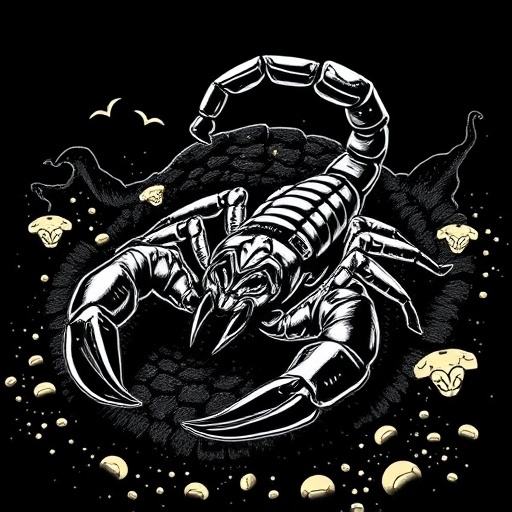Tucson scorpions are most active during warm, dry spring to early fall months due to optimal temperatures. Understanding this peak activity period is vital for effective scorpion control Tucson strategies. By sealing entry points, maintaining landscaping, and employing professional treatments during these seasons, residents can minimize sting risks and create safer outdoor spaces. Environmental factors like temperature, moisture, and rainfall also significantly influence scorpion behavior. A year-round approach to Tucson scorpion control is recommended, tailored to seasonal patterns for optimal results.
In Tucson, scorpions are a common pest during certain times of the year. Understanding their seasonal activity patterns is crucial for effective scorpion control. This article explores the optimal times for scorpion activity in Tucson, delves into environmental factors influencing their behavior, and provides practical strategies for managing and controlling scorpions in homes and yards. For those seeking scorpion control in Tucson, these insights offer valuable guidance to minimize infestations and ensure a safer environment.
- When are Tucson Scorpions Most Active?
- Environmental Factors Influencing Scorpion Behavior
- Effective Scorpion Control Strategies for Tucson Homes and Yards
When are Tucson Scorpions Most Active?

In terms of activity, Tucson scorpions are most active during the warmer months of the year, typically from late spring through early fall. This period aligns with the optimal temperature range for these arachnids, allowing them to be more mobile and visible. During these months, you’ll often see them scurrying across outdoor spaces, seeking food and mates. Understanding this seasonal pattern is crucial for anyone interested in scorpion control Tucson, as it helps in identifying peak times when scorpions are most abundant and active.
Knowing their activity patterns enables residents to take proactive measures. This may include sealing entry points, maintaining proper landscaping, and employing professional scorpion control services to mitigate the risk of stings and ensure a safer environment. In light of this knowledge, it’s essential for folks in Tucson to stay vigilant during these active seasons, especially when spending time outdoors.
Environmental Factors Influencing Scorpion Behavior

The behavior of scorpions in Tucson is greatly influenced by environmental factors, which play a crucial role in their activity patterns throughout the year. One of the primary considerations is temperature; these arachnids are cold-blooded, meaning their metabolic rate and activity levels fluctuate with the surroundings. During the hotter summer months, scorpions in Tucson become more active, seeking shelter during the scorching midday heat and becoming more visible as they forage for food. Conversely, they tend to be less active in the colder winter seasons, often entering a state of quiescence when temperatures drop significantly.
Additionally, moisture levels and rainfall patterns impact scorpion behavior. Tucson’s arid climate means scorpions are well-adapted to drought conditions, but substantial rainfall can influence their distribution and activity. After rain, scorpions may move to different areas, taking advantage of the increased moisture and potential food sources. Understanding these environmental factors is essential for effective scorpion control in Tucson, as it helps professionals and residents develop strategies to manage and minimize interactions with these fascinating yet potentially nuisance pests.
Effective Scorpion Control Strategies for Tucson Homes and Yards

Scorpion control in Tucson is a year-round endeavor, as these resilient arachnids adapt to the region’s climate. However, understanding seasonal activity patterns can guide effective scorpion control strategies for Tucson homes and yards. During spring and summer, when temperatures rise above 85°F (29°C), scorpions become more active, seeking water sources and prey. This is the prime time to inspect and seal entry points, such as cracks in foundations, gaps around pipes, and openings in screens. Regular outdoor lighting should be reduced or shielded, as bright lights can attract scorpions.
In fall and winter, scorpion activity tends to decrease, but they may still be present. To maintain a scorpion-free environment, continue with regular inspections and maintenance. Treating problem areas with professional-grade insecticides designed for scorpions can be effective. Additionally, keeping yards well-maintained by removing excessive debris, trimming vegetation, and sweeping regularly can deter scorpions from seeking shelter in your Tucson home or yard.
Understanding the seasonal activity patterns of Tucson scorpions is key to effective scorpion control. By knowing when they are most active, you can implement targeted strategies that disrupt their behavior and protect your home and yard. Environmental factors play a significant role in their movement, so monitoring these conditions can help in your scorpion control efforts. With the right approach, Tucson residents can co-exist harmoniously with these creatures, ensuring a safe and comfortable living environment. For professional assistance in scorpion control Tucson, consult experts who specialize in tailored solutions for your specific needs.
